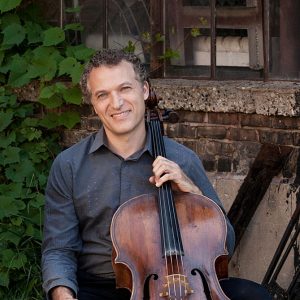
Self-Motivation and Summer Vacation
Brandon Vamos
As I helped my students over the last few weeks in preparation for their juries and looked through my calendar to discover how many recitals I will be attending before the middle of May, it suddenly hit me. The end of the school year is upon us once again. That time when there’s one final burst of juries and lessons, tests and papers before summer vacation hits. And after a long academic year, summer vacation can offer a welcome change. I remember those summers I was attending summer programs, and had three or four weeks off, or those students who sometimes have the entire summer devoted to working or relaxation. But regardless of what your summer plans may look like this year, I’d encourage you to remember one very important aspect of being a successful musician: self-motivation. The truth is, although some time off is occasionally beneficial, nothing will ever be handed to you. You are responsible for making it happen. No teacher, manager or job will magically fall from the sky. You will find that the common denominator in successful careers is self-motivation, with a strong focus on goals.
So what exactly does this look like? Well, to start, goals, scheduling, and performing need to be at the forefront of your thinking. It’s possible to make as much progress in the summer as in a whole semester. Without classes or other distractions there is unlimited time to devote to things like choosing new rep, focusing on technical issues or just improving your level of performance. For some students, not having a teacher for a stretch of time can be a challenge, but this guidance is something that will not always be there. Eventually the goal of a performer needs to be not relying on outside input, instead making their own technical and musical decisions. I often find myself exploring new ideas with students that come to light during my own time playing and practicing. The time you spend with your instrument is not only crucial, but directly related to your progress.
But enough talking in big, lofty ideas. In order to really make all this happen the first step is to schedule in practice time. Not just decide that this week you’ll devote a few hours here and there. But formally schedule times for practice, for listening, for looking for new rep. For example, instead of a free day that might easily slip away, you’ll know you have from 9-11am and 4-6pm booked – set aside to practice. Each hour should be devoted to something specific: from 9-10am work on scales, arpeggios, and etudes and from 10-11am on concertos. Give yourself the opportunity to achieve goals by not just setting them, but giving yourself deadlines. Nothing is a better motivator than a deadline. My quartet is like that. We give ourselves big projects (learning, playing, recording cycles, performances, etc) that push us to learn rep. And let’s face it, a little bit of pressure can be a great motivator! The other thing you can easily take advantage of over the summer are a multitude of performing opportunities. Before you tell me you don’t have any groups to play with or concerts scheduled, it’s much easier than you think. And I’ll remind you that the benefits of performing are many. In addition to gaining visibility and experience, familiarizing yourself with rep, and improving as a performer, performances are great opportunities to meet goals (think about how you work to get a piece ready to play in studio class during the school year). Performances don’t have to always be formal. Contact a local community center, nursing home or retirement community or even a church. Even host an impromptu performance at your home or work. The first performance of a piece can often present a number of challenges. Getting the “first time” jitters out of the way will help make the second performance significantly stronger. All these things will be sure to keep you on track and prepared for whatever is to come in the fall, whether it’s another school year, beginning a new gig or freelancing on your own.
School life is of course challenging. Students are pulled in many different directions and a lot is expected of them. But that unfortunately does not change with a professional career. In fact, it might even get more demanding! But especially in those cases, self-motivation is more important than ever. Any good career cannot be stagnant. There’s no room for thoughts of “I’ve made it, so now I can sit back and enjoy the ride.” As musicians we must constantly push ourselves to learn more music and take on more (and sometimes very time consuming) projects. We need to continuously improve and grow. Without goals, we’d quickly lose the enjoyment. The workload is tough, but the rewards are many.
Subjects: Practicing
Tags: arpeggios, Brandon, career, cello, cellobello, challenges, Experience, focus, Growth, improvement, motivation, Performing, Practice, practicing, recording, scales, scheduling, school, student, success, Summer
